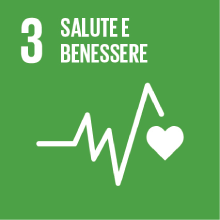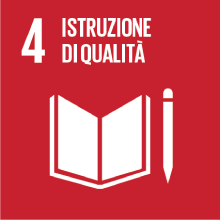GLOBAL HISTORY
- Anno accademico
- 2018/2019 Programmi anni precedenti
- Titolo corso in inglese
- GLOBAL HISTORY
- Codice insegnamento
- LM6320 (AF:298677 AR:157264)
- Modalità
- In presenza
- Crediti formativi universitari
- 6
- Livello laurea
- Laurea magistrale (DM270)
- Settore scientifico disciplinare
- M-STO/02
- Periodo
- I Semestre
- Anno corso
- 1
- Spazio Moodle
- Link allo spazio del corso
Inquadramento dell'insegnamento nel percorso del corso di studio
-Provide students with a clear theoretical and empirical framework to understand the concept of Global and Globalization according to an historical perspective
-Analyze themes of Global History in a multidisciplinary perspective able to encompass political, economic and cultural factors
-Analyze how the methodology of Global History could give new outlooks also on national histories, starting from the case of Italy
-Analyze the key-themes of Globalization (the intertwinement between economic, political and cultural networks) and their historical development during the Early Modern Age
The above-mentioned four specific objectives aim to give students the instruments necessary to develop a critical and personal view of the topics discussed and to develop an independent and multidisciplinary methodology for the analysis of historical phenomena to better understand the present.
Risultati di apprendimento attesi
- Understand the general framework of Global History and Globalization
- Understand the global approach to history
- Understand the multidisciplinary character of Global History through the thematic cases presented
- Understand the processes of Globalization during the Early Modern Age
2. Ability of applying knowledge and understanding
- Understand the general framework of Global History and Globalization> Ability of discussing subjects related to the field (Global History) in a specialized language and according to an historical methodology and to explain them to classmates
- Understand the global approach to history > Ability of comprehending the methodology of Global History and to confront it with other instrument of analysis they already master from previous studies (e.g. European history, Atlantic history, History of International Relations)
- Understand the multidisciplinary character of Global History through the thematic cases presented> Ability of applying the historical methodology acquired through the cases analyzed also to other fields of study (e.g. final dissertation)
- Understand the processes of Globalization during the Early Modern Age > Ability of analyzing events and phenomena in an historical dimension
3. Judgement abilities
- Ability of connecting the facts and data learnt during lessons
- Ability of organizing the course materials (lessons and readings) in a coherent interpretation
- Ability of interpreting and commenting the weekly reading materials
4. Communicative abilities
- Ability of presenting the issues related to the field of study using specialized language
- Ability of presenting the knowledge acquired from lessons and readings in a coherent discourse
- Ability to gather data and to create learning supports (e.g. hand-out, ppt presentation) in order to present one own’s results during lessons and seminars
5. Learning abilities
- Ability of taking notes during lessons
- Ability of critically reading the assigned bibliography
- Ability of connected the knowledge acquired to nowadays issues
Prerequisiti
Students must fulfill the minimum credit requirements (ECTS) for the admission to the MA in Comparative International Relations. Therefore, they must possess at least 6 ECTS from the Political logical-social and historical Field
Contenuti
- The concepts of Global and Globalization
- The current debate on Global History and the origins of Global History: is there a Global / World Italian History? The case of Storia mondiale dell’Italia (2017)
- How the World became Global: the process of Globalization during the Early Modern Age:
a. Commercial networks
b. Networks of information
c. Networks of communication
d. The state-nation
e. Democracy and Human Rights
f. Public Health and Welfare
g. Cultural networks
Testi di riferimento
Reading list
The following texts will be presented to the class by groups of (3 to 5) students during the seminars (lessons 10-15; see also below: Assessment methods). Other materials will be added, so students are advised to check the list periodically.
In their presentations students can propose to their classmates also other materials and themes not included in the list.
Materials will be available on moodle or will be given in class.
The knowledge of these texts is part of the exam, therefore also those who will not be able to attend lessons and/or do a class presentation are required to read and study them.
1. Francesca Bray, Technological transitions, in The Cambridge World History. Vol. VI The construction of a global world, 1400-1800 CE, Part I: Foundations, ed. by J. H. Bentley, S. Subrahmanyam, M. E. Wiesner-Hanks, Cambridge, 2015
2. Peterk Burke, Patterns of Urbanization, 1400 to 1800, in The Cambridge World History. Vol. VI The construction of a global world, 1400-1800 CE, Part I: Foundations, ed. by J. H. Bentley, S. Subrahmanyam, M. E. Wiesner-Hanks, Cambridge, 2015
3. Dirk Hoerder, Global migrations, in The Cambridge World History. Vol. VI The construction of a global world, 1400-1800 CE, Part II: Patterns of change, ed. by J. H. Bentley, S. Subrahmanyam, M. E. Wiesner-Hanks, Cambridge, 2015
4. John E. Willis, The first global dialogues: inter-cultural relations, 1400-1800, in The Cambridge World History. Vol. VI The construction of a global world, 1400-1800 CE, Part II: Patterns of change, ed. by J. H. Bentley, S. Subrahmanyam, M. E. Wiesner-Hanks, Cambridge, Cambridge University Press, 2015
5. Jeremy Black, Patterns of warfare, he Cambridge World History. Vol. VI The construction of a global world, 1400-1800 CE, Part II: Patterns of change, ed. by J. H. Bentley, S. Subrahmanyam, M. E. Wiesner-Hanks, Cambridge, Cambridge University Press, 2015
6. Noble David Cook, The Columbian Exchange ,in The Cambridge World History. Vol. VI The construction of a global world, 1400-1800 CE, Part II: Patterns of change, ed. by J. H. Bentley, S. Subrahmanyam, M. E. Wiesner-Hanks, Cambridge, 2015
7. John Thornton, The slave trade and the African diaspora, in The Cambridge World History. Vol. VI The construction of a global world, 1400-1800 CE, Part II: Patterns of change, ed. by J. H. Bentley, S. Subrahmanyam, M. E. Wiesner-Hanks, Cambridge, 2015
8. Dennis O. Flynn, Silver in a global context, 1400-1800, in The Cambridge World History. Vol. VI The construction of a global world, 1400-1800 CE, Part II: Patterns of change, ed. by J. H. Bentley, S. Subrahmanyam, M. E. Wiesner-Hanks, Cambridge,2015
9. Trevor Burnard, Plantation society, in The Cambridge World History. Vol. VI The construction of a global world, 1400-1800 CE, Part II: Patterns of change, ed. by J. H. Bentley, S. Subrahmanyam, M. E. Wiesner-Hanks, Cambridge, 2015
10. Po-Chia Hsia, Christianity in Europe and overseas, in The Cambridge World History. Vol. VI The construction of a global world, 1400-1800 CE, Part II: Patterns of change, ed. by J. H. Bentley, S. Subrahmanyam, M. E. Wiesner-Hanks, Cambridge, 2015
11. Nile Green, Islam in the early modern world, in The Cambridge World History. Vol. VI The construction of a global world, 1400-1800 CE, Part II: Patterns of change, ed. by J. H. Bentley, S. Subrahmanyam, M. E. Wiesner-Hanks, Cambridge, 2015
12. Eugenio Menegon and Gina Cogan, Religious change in East Asia, in The Cambridge World History. Vol. VI The construction of a global world, 1400-1800 CE, Part II: Patterns of change, ed. by J. H. Bentley, S. Subrahmanyam, M. E. Wiesner-Hanks, Cambridge, 2015
Modalità di verifica dell'apprendimento
The first question will ask the student to present a chosen subject (taken from lessons or bibliography), so that he/she can show his/her ability of organizing information in a coherent discourse and in a historical perspective, to critically engage them and to integrate them with previously acquired knowledge.
The second question will be on an issue explored during lessons so that the student can show his/her ability of personal re-elaboration and of critical listening.
The third question will concern the texts assigned, so that the student can show his/her ability of critical reading, understanding of scholarly literature in connection with already acquired information.
The oral exam will define the 90% of the final grade.
Students will be asked to actively participate in lessons. In groups (3 to 5 students) they will also present to the class and discuss materials from the reading list and from their personal research. Participation and oral presentation to the class will define the 10% of the final grade.
Metodi didattici
Seminars (lessons 10-15)
Case study analysis
Ppt presentations
Digital Humanities
Modalità di esame
Obiettivi Agenda 2030 per lo sviluppo sostenibile
Questo insegnamento tratta argomenti connessi alla macroarea "Capitale umano, salute, educazione" e concorre alla realizzazione dei relativi obiettivi ONU dell'Agenda 2030 per lo Sviluppo Sostenibile


